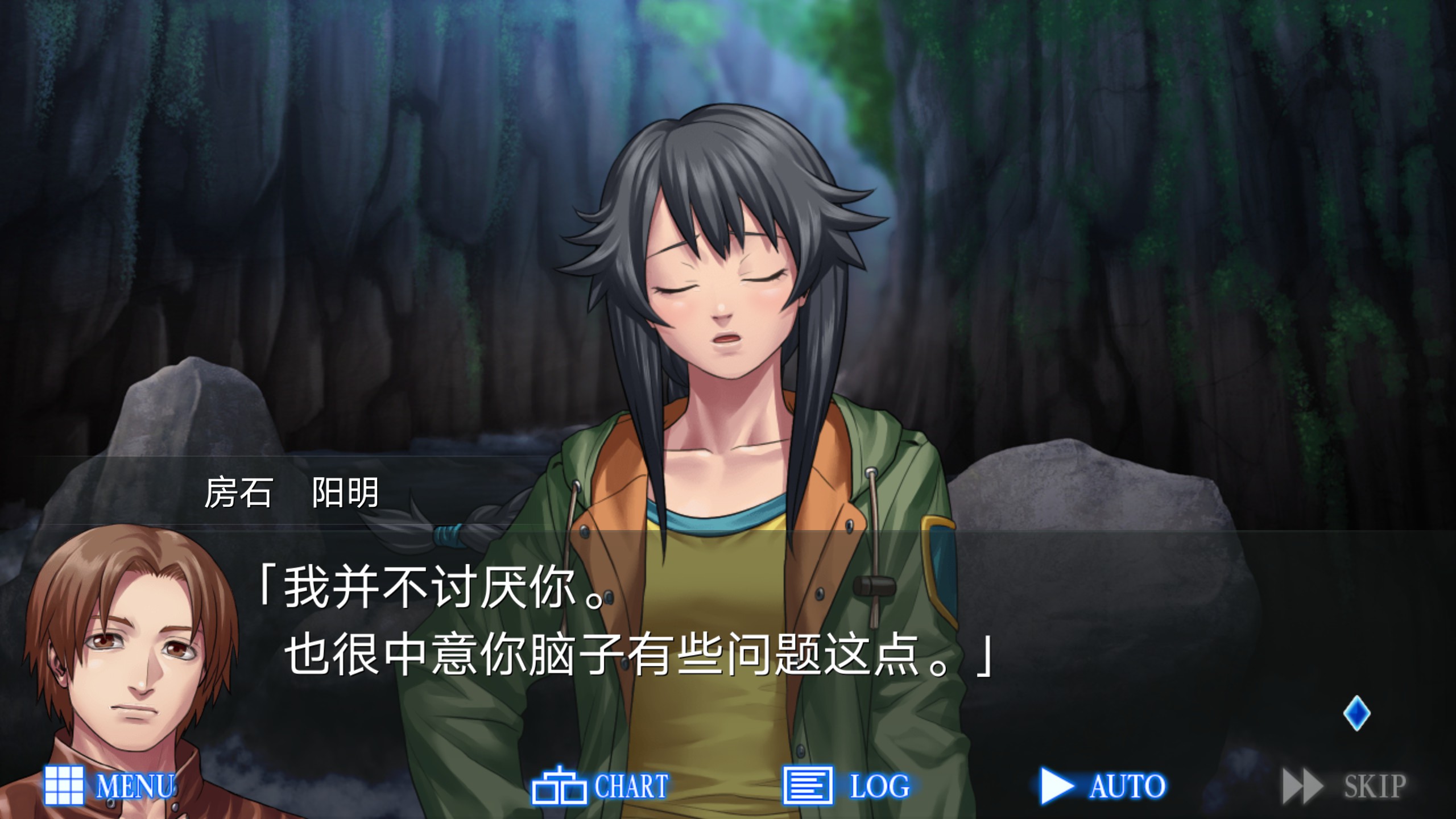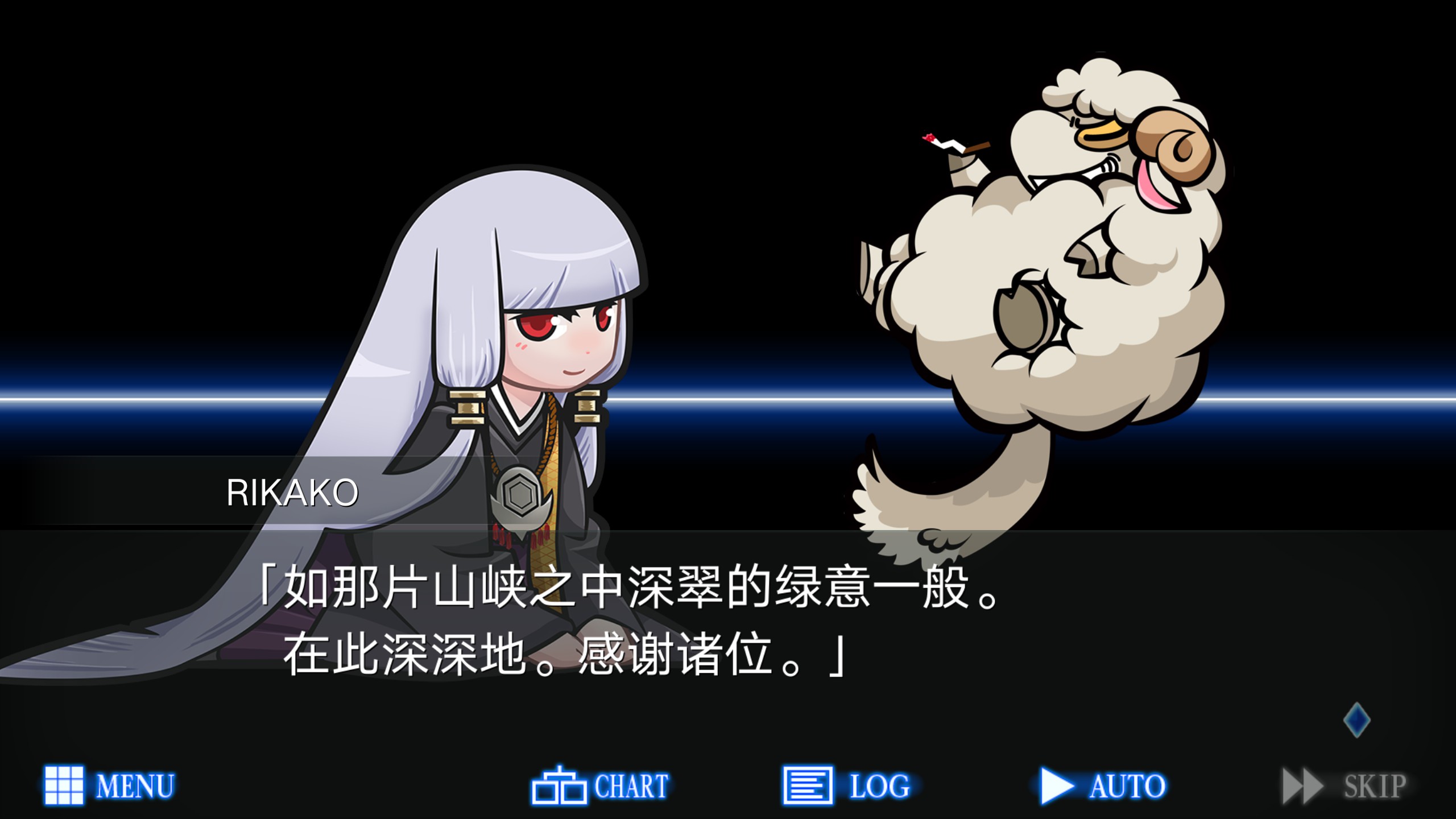Review of Rei-Jin-G-Lu-P
It is a little bit surprising to hear about a VN from a "AAA game fan" friend of mine, for which I got out of my way to buy popular Rei-Jin-G-Lu-P for a try.
Objectively, this is quite an impressive work featured in its successful attempt combining Werewolf game with Japanese folktales. Similar to my crowning Itsuka no Memoraĵo ~Kotonoha Amrilato~ as my "All-time Best VN" for its implication about linguistics, a lover of Japanese myths may directly put it on the top shelf while a more common VN fan like me may feel perplexed at the first sight.
Admittedly it has unique gameplay, as a bad lier, I am barely interested in Werewolf game for long; As a "coward", I am even a little bit annoyed at the jump scares of Lovecraft-style faces; I am not a big fan of inference game / detective game either, which may explain why I was tired from slowing down to choose "wisely". More importantly, though hardly visits anything about inference, it is still obvious to me that a real frightening mystery SHOULD be artificial. In other words, nothing is more scary then the dark side of human nature. Here, however, the resolution seems contradictory to resort to both man-made trick and hyperphysical existences like "god" or "evil", which is unacceptable for and even ridiculous to me, a player with a slightly higher standard in logical narrative.
Well, a "traditional" galgame player always put love story first (?). As for the romance between M. Haruaki Fusaishi and Mlle Chiemi Serizawa (just forget Mlle Rikako Uematsu and Mlle Haru Makishima first, fine?), it was more an elegy of human frailty than an ode of their toughness. Think about Saya no Uta, it seems meaningless to judge M. Fuminori Sakisaka anyway and it is the same here for our "crazy" hero and heroine. Still, comparing with Mlle Saya of sublimity, our Chi-chan did few thing for mystery resolution but awaited salvation, simply making me feel "how pathetic". Luckily (?), rather than blame on the "unilateral sin" of our Chi-chan, we could systematically attribute this to the design of our Hassan as another "savior hero".

Pic shot by Syl in Rei-Jin-G-Lu-P
Honestly his dress-up speech in the resolution 1 of 3 seemed to be a kind of performance art for me. Considering the CLANNAD-like "complex interpersonal relations in a small town (village)" and its chemistry when combined with lethal Werewolf game, his volition to save everyone from superstition (?) was definitely a hightlight of the game. What's more, there is something profound here inside the lines.
The keypoint is "Correctness". People choose to believe something as a result of feeling correct in believing them; and choose to convert when something more correct appears. According to Aristotle, ethos, logos and pathos are essential for persuasion, that is make the others feel correct. Here, Hassan in costume voiced for each villager about their true feeling. With proper disguise of ethos, such correct words can reach inside and replace former yoke upon humanity.
There was discussion over good / bad people elsewhere: people chose to be a good guy by doing correct things to reassure themselves, but what if the standard of correctness is questioned? What if the standard of correctness should be questioned? This work sheds light on the option of "following your heart" and "being a bad guy" sometimes.

Pic shot by Syl in Rei-Jin-G-Lu-P
by Syl & Sylvia @ 2024-03-11 14:30:21 @ Beijing, Haidian District
originally posted @ https://www.cnblogs.com @ 2024-03-11


